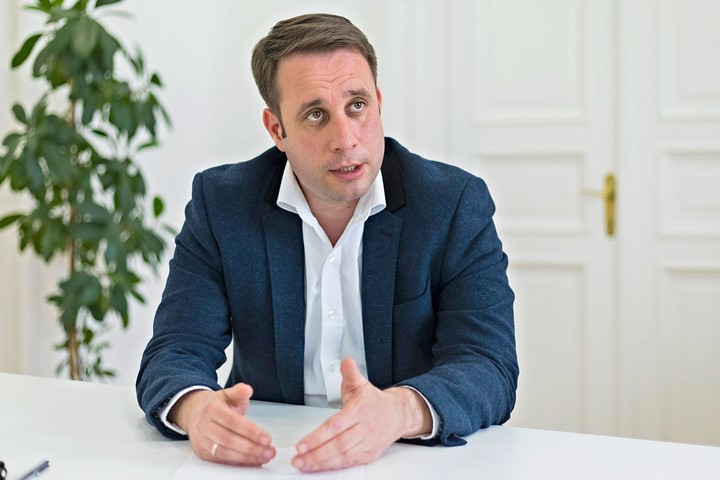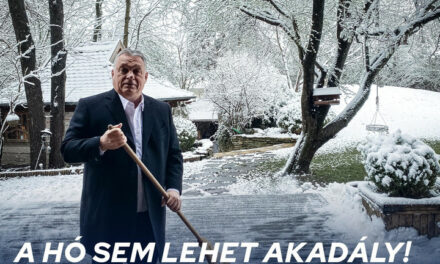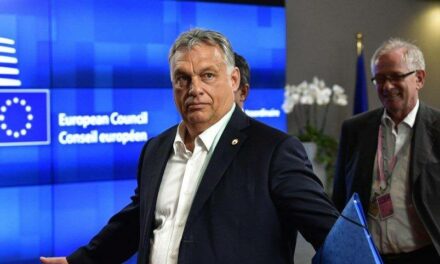We can rightly feel that we have been cheated, because in the spring they promised that the aforementioned sanctions would not be extended to energy, yet they did, and the consequences of this are now primarily not Russia, but Europe is suffering - stated the state secretary of the Prime Minister's Cabinet Office on Kossuth Radio Sunday in his program "Newspaper".
Csaba Dömötör emphasized that sanctions do not work, so a change of direction is necessary. He added that this is why the government decided to announce a national consultation. If many of us stand up for the need for change in the sanctions policy, it will result just as we were able to prevent the resettlement plans with the previous consultations and the referendum that brought clear results, he noted.
He also stated that what is needed is not additional sanctions, but a review of the sanctions policy.
He reminded me that even in March, the President of the European Commission spoke about the need to end our dependence on Russian energy by 2027, and the German Chancellor also said at the time that Russian energy shipments were deliberately left out of the sanctions, because otherwise it is not possible to ensure the heating, power supply, or even the operation of industry. At the EU summit in Versailles before the Hungarian parliamentary elections, it was also said that there would be no energy sanctions, the state secretary recalled.
However, everything changed in June, they decided on oil sanctions and the Hungarian Prime Minister was able, at the cost of tough discussions, to ensure that they did not apply to us at all - said Csaba Dömötör. "And with that momentum, they turned to gas sanctions as well, the consequences are known, gas prices took off, they rose to a two or threefold level in a short time," he continued, then declared: "the rise due to the lifting and acceptance of the sanctions was much greater than the rise due to the outbreak of the war it happened immediately after".
In our opinion, this is not an elite debate, because the consequences are drastic and everyone feels it: heating restrictions, closures of institutions, factory shutdowns in many countries, and then I didn't even talk about the skyrocketing food prices - listed the politician, who according to him, "since the heating season is just coming, the difficult it's just coming."
Regarding the national consultation, he said: there are two types of attitudes, one according to which the opinions of citizens and voters should not be asked between two elections. "We do not believe that
we think that when new circumstances arise, that when major events occur - war is one of those - then it is worthwhile and necessary to ask the opinion of the citizens," he said.
In relation to energy prices and sanctions, the state secretary also mentioned specific quotes such as, for example, "this is difficult, but it has to be done" or "we send utility bills to Moscow". He noted: "right now, the Brussels elite may not feel the consequences of the sanctions, but the vast majority of people do."
Csaba Dömötör added: the more condescending the bureaucrats are, the more important it is for us to listen to people's opinions. He emphasized: every European country is now paying the penalty surcharge, even bigger and richer countries than us, and there is no person in Europe who does not feel the burden of this in their own life.
"Is it any wonder after all this that everyone is angry?" - he suggested, and then continued: "we are too, but our anger must now be turned into action: the sanctions policy is dead, so it must be changed, and this is what the current national consultation is for".
The lifting of gas and nuclear sanctions is also against the country's interests, so we have to get involved in these discussions as well, stated Csaba Dömötör.
In connection with the consultation, he emphasized that the questions are being finalized now. He added: it seems certain that the questionnaires will arrive from the middle of October and, as usual, they can be returned both online and by post.
Source and full article: Magyar Hírlap
Featured image: MH/Tamás Purger












